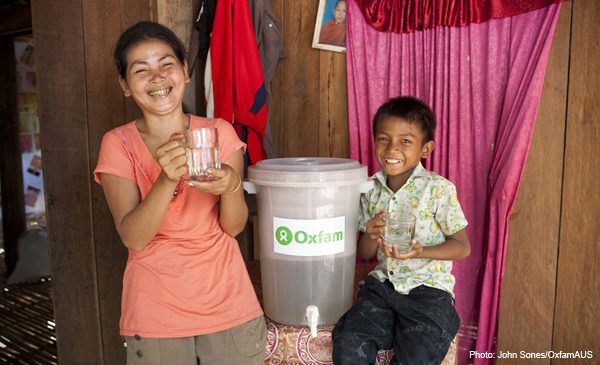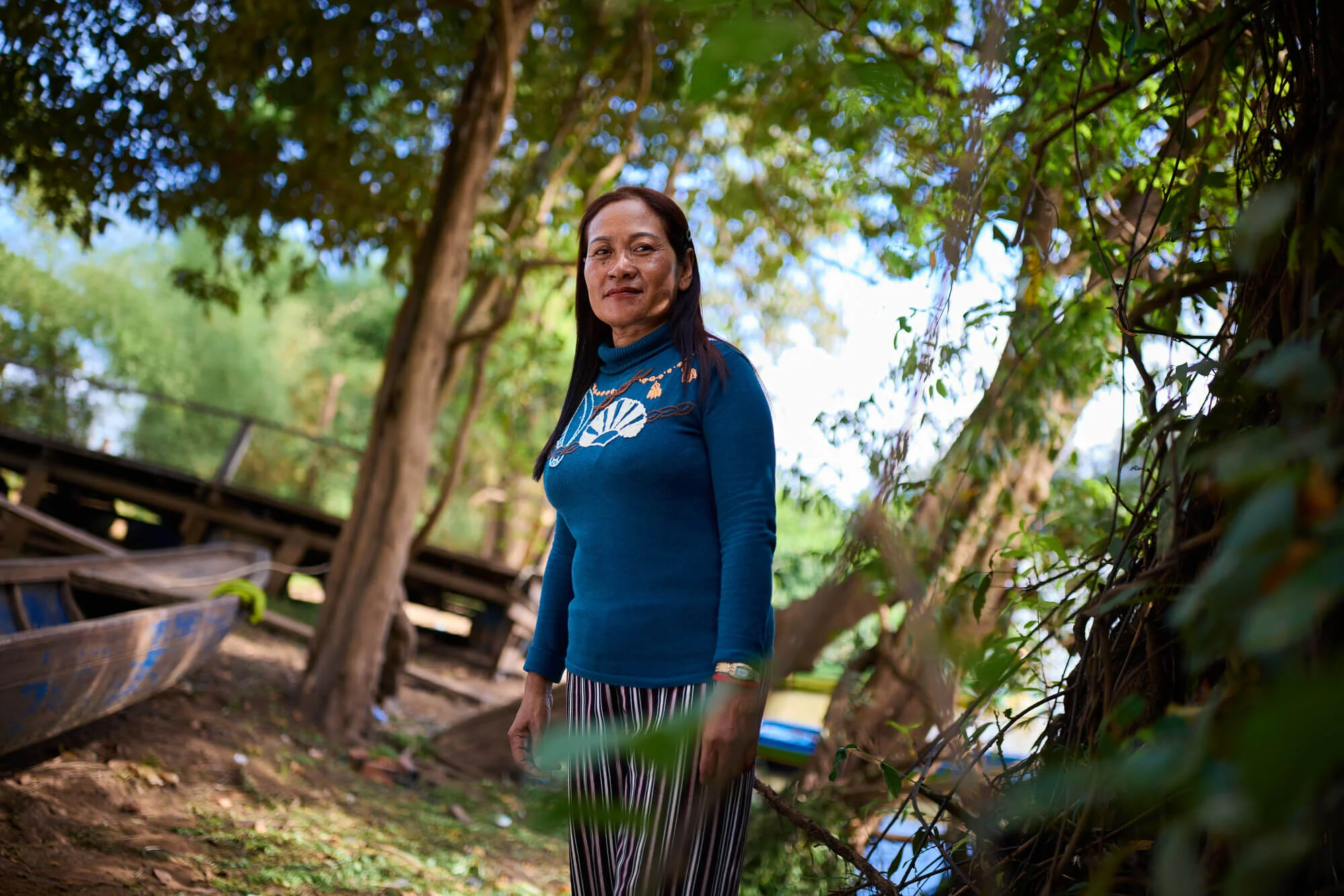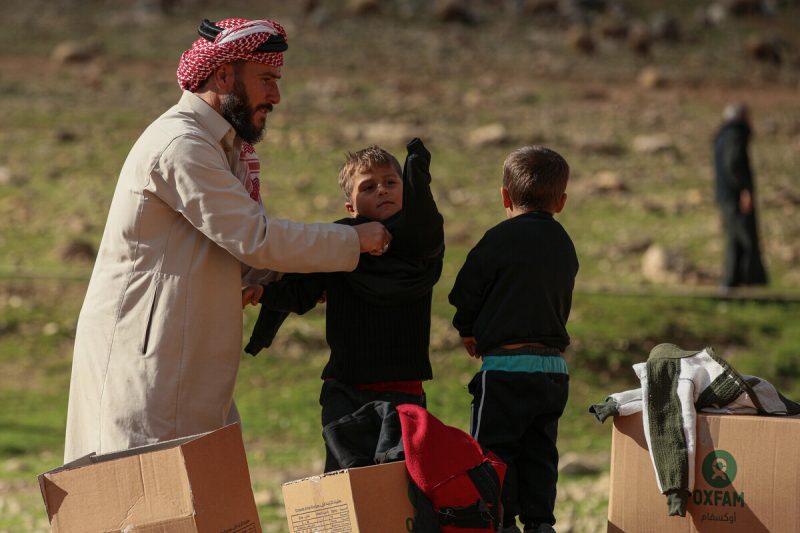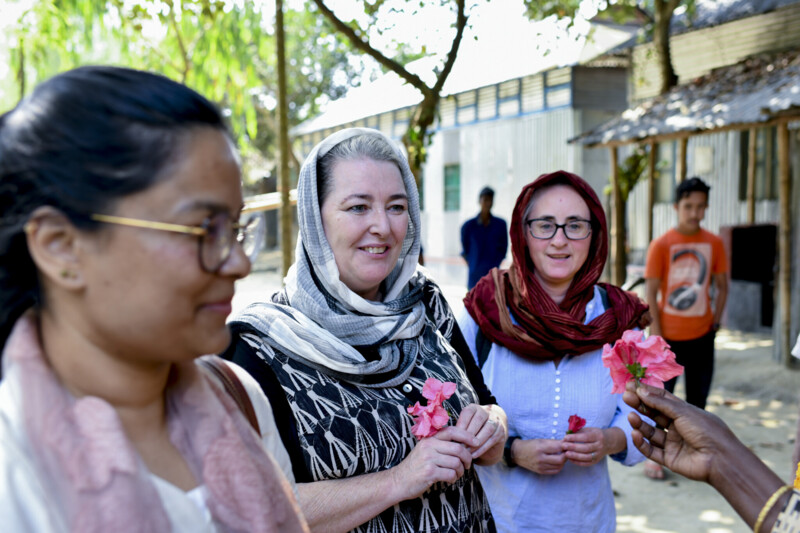Earlier this month we introduced you to Oeun, the face of our Clean water saves lives appeal. Oeun, a mother of four in rural Cambodia, talked about the challenges of living without reliable access to clean water, and about working with Oxfam to improve access for her family.
This week, in the second part of Oeun’s story, she talks about the importance of hygiene education and the impact that unclean water can have on economic survival.
Could you describe what your children have learnt about hygiene and sanitation at school?
The teachers taught my children that they need to wash their hands before they eat something and when they want to go to the toilet, to not go to the bush, but to find a place where there is a proper toilet and use it. And then once they have used it, they need to clean their hands again, because if you do not clean your hands, they could be dirty and cause sickness.
What does your son know now about the importance of clean water?
My kids tell me that they have to drink clean water because the teacher told them that when they drink the clean water they won’t get sick. So they always tell me “Mum, do you have any clean water for me, because I don’t want to get sick.”
Do you wish that you knew this information when you were young?
I remember when I was young, when I was thirsty in the school I would just run to the river to get water to drink. Or sometimes I had a bottle that could store the river water in it and I could take it to the school and drink it. Sometimes I would just use my hand to scoop the water and drink it. I didn’t have clean water. I am so happy for my children, for this generation, that they have the toilet and clean water to drink. It is really good for them; it is a lot better than for my generation.
What have you learnt from Oxfam about water sanitation and hygiene?
I have learnt about clean water and hygiene. They gave me a water filter and showed me how to clean it and told me I should clean it once every three days. Every three days, I have to take the ceramic filter out and clean the plastic with soap using the soft cloth on the inside, and the brush to clean the outside. I make sure that I keep the water clean. They told me that I should maintain it, not just leave it and drink it without cleaning it. If I leave it, it will lose effectiveness quickly.
What kind of farming do you do?
We grow rice. This year we are trying to grow cassavas, around 400 cassava plants. We only started this year, so I don’t know if it will give us profit or not.
Why did you choose to do that?
When I go to the market or Kratie town, I saw lots of people selling cassava on the street. They grow it and they sell it and they earn good money. So I thought, if they can do it, why can’t we? So I took some of our money to try it. We’ll see if it will work well.
When your family had diarrhoea before, did it prevent the family from farming?
I wasn’t able to go to the field to work, so just my husband and children would go to the farm.
How often would this happen?
Before I used the water filter, it did happen quite a lot with my family. For example, when I had diarrhoea, around 2-3 days later I would feel better, but four or five days later my children would get it. Then after my children got rid of it, a couple of days later, my husband would get it. It would pass around the family.
How did this impact the farming?
If my husband and children get sick, I could not go and do the work on our farm. For me it is ok, I can take care of my children, but if my husband is sick we cannot do anything. I would need to stay home and take care of my husband and nobody can work in the field.
Now are you able to go to the field all the time?
Yes, now I mostly go to the farm every day
What do you say is the advantage of having clean water?
I tell people that if you drink clean water and use the toilet, that if we keep ourselves clean and drink clean water, it reduces disease and we don’t need to spend money going to the doctor or buying medicine.
In the coming weeks we’ll visit two other villages in Cambodia and share the stories of people we’ve worked with there, so stay tuned for more!
In the meantime, you can help support our water and sanitation (WASH) work in Cambodia and other countries by donating to our Clean water saves lives appeal . And if you’d like to know more about our WASH work in Cambodia, ask our field staff!



